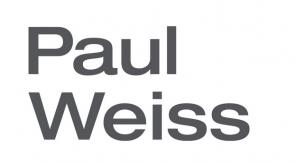
1. How to Find the Right Mentorship for Your Legal Career?
One of the most critical aspects of a legal career is mentorship. A mentor can shape your career by guiding you through difficult decisions, offering support, and providing opportunities for professional growth. However, finding the right mentor is often challenging, especially in an environment where structured mentorship may be limited.
- Seek Mentors Proactively: Mentorship doesn’t happen by chance. Attorneys need to actively seek out individuals who align with their career goals and values. Whether it’s a partner at your firm, a senior associate, or an external contact, you should look for someone who can offer both career and personal development advice.
- Solution: Start by working with senior attorneys on various projects. Offer to help them with significant work and ensure the quality of your contribution is top-notch. This can organically develop into a mentor-mentee relationship.
- Mentorship as a Long-Term Relationship: Mentors can evolve throughout your career. Early on, a good mentor can help with foundational skills, while later in your career, a mentor may offer more strategic advice on business development or navigating firm politics.
- Solution: Build long-term relationships, even beyond your immediate needs. You never know when a past mentor might open doors to new opportunities.
See Also: The Importance of Law Firm Mentoring Programs
2. How Can Attorneys Build Resilience Against Rejection?
Rejection is inevitable in the legal profession, whether it's missing out on a coveted role or losing a client. However, resilience is a skill that can be developed over time, helping attorneys stay motivated and focused despite setbacks.
- The Importance of Persistence: It’s easy to lose motivation after repeated rejections, but persistence is key to long-term success. Even highly successful attorneys have faced rejection countless times before finding their path.
- Solution: Keep applying, refining your approach after each rejection. The more opportunities you pursue, the better your chances. Aim to improve with each rejection—whether it's by refining your resume, networking more strategically, or honing your interview skills.
- Separate Yourself from the Rejection: Often, rejection is not a reflection of your ability but a result of market forces or firm-specific needs. Learning to detach from rejection and view it as a stepping stone is essential.
- Solution: Create a routine where you review your application process after each rejection and make adjustments. Always approach the next opportunity with a fresh mindset.
See Related Articles:
- Mastering the Legal Job Market: Overcoming the Top Reasons for Attorney Rejection
- Why an Attorney Should Never Give Up after Being Rejected from a Few (or Many) Law Firms
- Dealing with Rejection: Job Searching in a Dating Context
- The Top 17 Reasons Law Firms Do Not Hire and Make Offers to Attorneys and Law Students: It's Not What You Think
3. How Should Attorneys Approach Job Transitions and Law Firm Mobility?
One question that surfaced was how attorneys can navigate job transitions without burning bridges or limiting future opportunities. This question is particularly relevant for attorneys facing limited upward mobility in their current firms.
- Recognizing Career Plateaus: One sign that it’s time to consider moving is when there’s limited room for growth. For example, if you’ve been at a firm for several years and no path to partnership or significant client development exists, it might be time to explore other opportunities.
- Solution: Before making any drastic decisions, assess your current situation. Are there ways to build your business or take on leadership roles in your firm? If not, begin exploring other firms or opportunities that align better with your long-term goals.
- Building Relationships Even While Moving On: Maintaining relationships is key to not burning bridges. Always leave with gratitude and professionalism, keeping doors open for future collaboration.
- Solution: Have a transparent conversation with your mentors and colleagues about your career aspirations and your desire for upward mobility. If they cannot meet your needs, express gratitude for the opportunities you've had and keep them as part of your professional network.
4. What’s the Best Approach for Balancing Work-Life and Career Growth?
Many attorneys struggle with the tension between building a successful career and maintaining work-life balance. Striking this balance is essential to long-term satisfaction and avoiding burnout.
- Strategic Career Choices for Work-Life Balance: You don’t need to sacrifice your entire personal life to be successful. Choosing a firm that aligns with your values regarding work-life balance is crucial.
- Solution: When considering new opportunities, evaluate not only the prestige or salary but also the firm’s culture around work-life balance. Smaller firms or specialized practice areas may offer more flexibility without sacrificing professional growth.
- Long-Term Perspective: Work-life balance isn't just about immediate satisfaction but about long-term sustainability. Can you envision yourself growing in your practice area without burning out? If not, a shift in practice or firm might be necessary.
- Solution: Consider transitions to practice areas with more predictable hours or in-house roles if flexibility becomes a priority.
While strategies are vital, understanding how to handle rejection and stay motivated is equally important—this Essential Q&A for Legal Career Success offers actionable insights.
5. How Can Attorneys Maximize Networking Within Their Firms?
Networking is one of the most effective tools for career advancement, yet many attorneys underestimate its value within their firms. Every interaction can be an opportunity to build your reputation and relationships with key decision-makers. Before diving into strategies, check out our video on seven reasons attorneys don’t reach their full potential to understand the common obstacles.
- Your Colleagues Are Future Clients: Every partner, associate, and even staff member could be a future source of business. Networking within your firm is just as important as external networking.
- Solution: Engage with your colleagues both formally and informally. Attend firm-sponsored events, seek out opportunities to collaborate on projects, and be proactive in offering your help.
- Associates as Future General Counsel: It's important to remember that today’s associates may be tomorrow’s clients. Investing in relationships early in your career can pay dividends later.
- Solution: Treat everyone—from fellow associates to support staff—as potential future clients or collaborators. Networking doesn’t always have to be upward; sometimes, lateral connections prove equally valuable.
See Related Articles:
- How Attorneys Can Network: Why Networking is Essential to Attorney Success
- The Next Step on Your Professional Path: Build a Network
- Is Contacting Your Old Boss a Good Idea When Looking for a Job?
6. Should Attorneys Consider Going In-House Early in Their Career?
Moving to an in-house position can seem like an appealing alternative to the intense workload of law firms, but it also has significant risks, particularly for attorneys early in their careers.
- Risks of Moving In-House Too Soon: Going in-house can limit your exposure to diverse legal work, and if things don’t work out, it can be challenging to return to law firm practice.
- Solution: Ideally, attorneys should wait until they’ve developed a strong foundation in a law firm before considering an in-house position. This allows them to build a more robust set of skills and relationships that can make future transitions easier.
- Long-Term Career Planning: While in-house positions may offer more immediate stability and work-life balance, they don’t always provide the same upward mobility or earning potential as law firms.
- Solution: If going in-house is part of your long-term career plan, ensure that the timing and opportunity align with your career goals. Make the transition after you've solidified your skills and network within a law firm.
7. How to Handle Rejection After Interviews
Not every interview will lead to a job offer, but how you handle rejection can significantly impact future opportunities.
- Dealing with Cultural Fit Issues: Sometimes, rejection isn’t about your skills or experience but about the firm’s culture. In such cases, it’s important to recognize that it might not have been the right fit for you either.
- Solution: Always follow up after an interview to express gratitude and keep the door open for future opportunities. If you weren’t a good cultural fit, consider that a positive outcome—working in an environment where you don’t fit can be detrimental to your career in the long run.
- Perseverance is Key: Interviews can be unpredictable, and even the most qualified candidates may face rejection multiple times. The important thing is to keep applying and learning from each experience.
- Solution: Seek feedback if possible, and use it to improve your performance in future interviews. Don’t take rejections personally, and remember that the right opportunity will come with persistence.
Conclusion
The legal profession is filled with challenges, but each challenge presents an opportunity for growth and learning. Whether you’re navigating mentorship, career transitions, work-life balance, or job rejections, the strategies outlined above provide a strong foundation for long-term success. For a visual guide to applying these strategies, view our video Two Things the Most Successful 5% of Attorneys Do, which demonstrates how top attorneys implement these practices daily.
- Complement these strategies with our Comprehensive Q&A on navigating career transitions, which covers real-world challenges attorneys face.
Resilience, strategic thinking, and continuous learning are key to overcoming obstacles and thriving in the legal world. By applying these lessons, attorneys can build fulfilling careers that align with their professional and personal goals.
- For a holistic perspective on mastering the legal career path with resilience, see The Power of Focus and Resilience: Lessons from Law, Life, and Leadership.
1. What are the most effective attorney job search strategies for advancing your legal career?
Answer: The most effective attorney job search strategies focus on aligning your strengths with practice areas and firms that genuinely value what you bring. Successful lawyers stay proactive, maintain market awareness, and consistently refine their résumés and deal sheets. Advancement comes from pursuing roles that stretch your abilities rather than simply offering marginal improvements. For guidance on identifying the right opportunities, explore the resources and openings on BCG Attorney Search.2. How can a lateral move improve long-term career growth for attorneys?
Answer: A well-timed lateral move can give attorneys access to stronger platforms, better mentors, and more substantive work. Many lawyers find that changing firms is the key to unlocking opportunities that weren’t available in their current environment. The goal is to move toward a firm where your practice area is valued and in demand, not simply to leave a challenging situation. A legal recruiter can help you assess whether a lateral move will truly accelerate your career trajectory.3. Why do law firm hiring practices place so much emphasis on consistency and commitment?
Answer: Law firms look for attorneys who demonstrate reliability and long-term potential, because these traits signal strong client-service instincts and cultural fit. Hiring partners want to see consistent employment patterns, sustained interest in a practice area, and a track record of steady growth. When you show commitment, firms view you as someone they can invest in. This mindset is crucial for both stability and advancement in the legal industry.4. Should attorneys work with a legal recruiter to navigate promotions or partner-track opportunities?
Answer: Working with a legal recruiter can clarify what’s realistic at your current firm and what might be available elsewhere. Recruiters understand hiring trends, growth areas, and the nuances of partnership expectations across firms. For many attorneys, an outside perspective provides the insight needed to make smart, strategic career decisions. BCG Attorney Search offers confidential guidance for attorneys evaluating advancement or partner-track options.5. How can attorneys position themselves for faster advancement in BigLaw versus boutique firms?
Answer: In BigLaw, advancement often comes from mastering high-value skills, becoming indispensable to partners, and developing a strong internal reputation. Boutique firms typically reward attorneys who take initiative, bring in clients early, and demonstrate business-minded thinking. The key in both environments is to create visible value and invest deeply in your professional development. With the right strategy and consistent effort, you can significantly accelerate your career path—BCG Attorney Search provides insight to help you do exactly that.About Harrison Barnes
No legal recruiter in the United States has placed more attorneys at top law firms across every practice area than Harrison Barnes. His unmatched expertise, industry connections, and proven placement strategies have made him the most influential legal career advisor for attorneys seeking success in Big Law, elite boutiques, mid-sized firms, small firms, firms in the largest and smallest markets, and in over 350 separate practice areas.
A Reach Unlike Any Other Legal Recruiter
Most legal recruiters focus only on placing attorneys in large markets or specific practice areas, but Harrison places attorneys at all levels, in all practice areas, and in all locations-from the most prestigious firms in New York, Los Angeles, and Washington, D.C., to small and mid-sized firms in rural markets. Every week, he successfully places attorneys not only in high-demand practice areas like corporate and litigation but also in niche and less commonly recruited areas such as:
- Immigration Law
- Workers Compensation
- Insurance
- Family Law
- Trust and Estate
- Municipal law
- And many more...
This breadth of placements is unheard of in the legal recruiting industry and is a testament to his extraordinary ability to connect attorneys with the right firms, regardless of market size or practice area.
Proven Success at All Levels
With over 25 years of experience, Harrison has successfully placed attorneys at over 1,000 law firms, including:
- Top Am Law 100 firms such including Sullivan and Cromwell, and almost every AmLaw 100 and AmLaw 200 law firm.
- Elite boutique firms with specialized practices
- Mid-sized firms looking to expand their practice areas
- Growing firms in small and rural markets
He has also placed hundreds of law firm partners and has worked on firm and practice area mergers, helping law firms strategically grow their teams.
Unmatched Commitment to Attorney Success - The Story of BCG Attorney Search
Harrison Barnes is not just the most effective legal recruiter in the country, he is also the founder of BCG Attorney Search, a recruiting powerhouse that has helped thousands of attorneys transform their careers. His vision for BCG goes beyond just job placement; it is built on a mission to provide attorneys with opportunities they would never have access to otherwise. Unlike traditional recruiting firms, BCG Attorney Search operates as a career partner, not just a placement service. The firm's unparalleled resources, including a team of over 150 employees, enable it to offer customized job searches, direct outreach to firms, and market intelligence that no other legal recruiting service provides. Attorneys working with Harrison and BCG gain access to hidden opportunities, real-time insights on firm hiring trends, and guidance from a team that truly understands the legal market. You can read more about how BCG Attorney Search revolutionizes legal recruiting here: The Story of BCG Attorney Search and What We Do for You.
The Most Trusted Career Advisor for Attorneys
Harrison's legal career insights are the most widely followed in the profession.
- His articles on BCG Search alone are read by over 150,000 attorneys per month, making his guidance the most sought-after in the legal field. Read his latest insights here.
- He has conducted hundreds of hours of career development webinars, available here: Harrison Barnes Webinar Replays.
- His placement success is unmatched-see examples here: Harrison Barnes' Attorney Placements.
- He has created numerous comprehensive career development courses, including BigLaw Breakthrough, designed to help attorneys land positions at elite law firms.
Submit Your Resume to Work with Harrison Barnes
If you are serious about advancing your legal career and want access to the most sought-after law firm opportunities, Harrison Barnes is the most powerful recruiter to have on your side.
Submit your resume today to start working with him: Submit Resume Here
With an unmatched track record of success, a vast team of over 150 dedicated employees, and a reach into every market and practice area, Harrison Barnes is the recruiter who makes career transformations happen and has the talent and resources behind him to make this happen.
A Relentless Commitment to Attorney Success
Unlike most recruiters who work with only a narrow subset of attorneys, Harrison Barnes works with lawyers at all stages of their careers, from junior associates to senior partners, in every practice area imaginable. His placements are not limited to only those with "elite" credentials-he has helped thousands of attorneys, including those who thought it was impossible to move firms, find their next great opportunity.
Harrison's work is backed by a team of over 150 professionals who work around the clock to uncover hidden job opportunities at law firms across the country. His team:
- Finds and creates job openings that aren't publicly listed, giving attorneys access to exclusive opportunities.
- Works closely with candidates to ensure their resumes and applications stand out.
- Provides ongoing guidance and career coaching to help attorneys navigate interviews, negotiations, and transitions successfully.
This level of dedicated support is unmatched in the legal recruiting industry.
A Legal Recruiter Who Changes Lives
Harrison believes that every attorney-no matter their background, law school, or previous experience-has the potential to find success in the right law firm environment. Many attorneys come to him feeling stuck in their careers, underpaid, or unsure of their next steps. Through his unique ability to identify the right opportunities, he helps attorneys transform their careers in ways they never thought possible.
He has worked with:
- Attorneys making below-market salaries who went on to double or triple their earnings at new firms.
- Senior attorneys who believed they were "too experienced" to make a move and found better roles with firms eager for their expertise.
- Attorneys in small or remote markets who assumed they had no options-only to be placed at strong firms they never knew existed.
- Partners looking for a better platform or more autonomy who successfully transitioned to firms where they could grow their practice.
For attorneys who think their options are limited, Harrison Barnes has proven time and time again that opportunities exist-often in places they never expected.
Submit Your Resume Today - Start Your Career Transformation
If you want to explore new career opportunities, Harrison Barnes and BCG Attorney Search are your best resources. Whether you are looking for a BigLaw position, a boutique firm, or a move to a better work environment, Harrison's expertise will help you take control of your future.
Submit Your Resume Here to get started with Harrison Barnes today.
Harrison's reach, experience, and proven results make him the best legal recruiter in the industry. Don't settle for an average recruiter-work with the one who has changed the careers of thousands of attorneys and can do the same for you.
About BCG Attorney Search
BCG Attorney Search matches attorneys and law firms with unparalleled expertise and drive, while achieving results. Known globally for its success in locating and placing attorneys in law firms of all sizes, BCG Attorney Search has placed thousands of attorneys in law firms in thousands of different law firms around the country. Unlike other legal placement firms, BCG Attorney Search brings massive resources of over 150 employees to its placement efforts locating positions and opportunities its competitors simply cannot. Every legal recruiter at BCG Attorney Search is a former successful attorney who attended a top law school, worked in top law firms and brought massive drive and commitment to their work. BCG Attorney Search legal recruiters take your legal career seriously and understand attorneys. For more information, please visit www.BCGSearch.com.
Harrison Barnes does a weekly free webinar with live Q&A for attorneys and law students each Wednesday at 10:00 am PST. You can attend anonymously and ask questions about your career, this article, or any other legal career-related topics. You can sign up for the weekly webinar here: Register on Zoom
Harrison also does a weekly free webinar with live Q&A for law firms, companies, and others who hire attorneys each Wednesday at 10:00 am PST. You can sign up for the weekly webinar here: Register on Zoom
You can browse a list of past webinars here: Webinar Replays
You can also listen to Harrison Barnes Podcasts here: Attorney Career Advice Podcasts
You can also read Harrison Barnes' articles and books here: Harrison's Perspectives
Harrison Barnes is the legal profession's mentor and may be the only person in your legal career who will tell you why you are not reaching your full potential and what you really need to do to grow as an attorney--regardless of how much it hurts. If you prefer truth to stagnation, growth to comfort, and actionable ideas instead of fluffy concepts, you and Harrison will get along just fine. If, however, you want to stay where you are, talk about your past successes, and feel comfortable, Harrison is not for you.
Truly great mentors are like parents, doctors, therapists, spiritual figures, and others because in order to help you they need to expose you to pain and expose your weaknesses. But suppose you act on the advice and pain created by a mentor. In that case, you will become better: a better attorney, better employees, a better boss, know where you are going, and appreciate where you have been--you will hopefully also become a happier and better person. As you learn from Harrison, he hopes he will become your mentor.
To read more career and life advice articles visit Harrison's personal blog.






